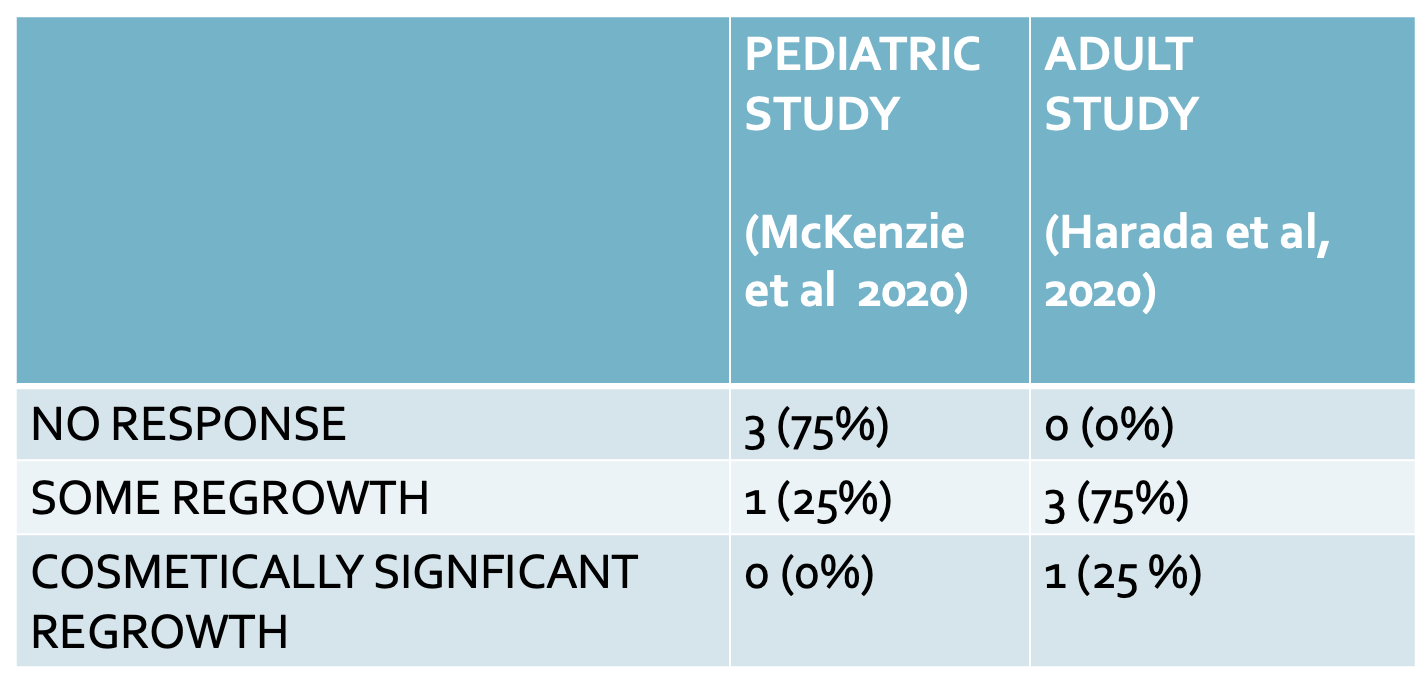Dupilumab Not Consistently Effective for Patients with Both Atopic Dermatitis and Advanced Alopecia Areata
Dupilumab (Dupixent) Helped 25 % of Adults But No Children with Combined Atopic Dermatitis and Alopecia Totalis/Universalis
Dupilumab is a new medication that blocks that IL-4/IL-13 signaling pathway in the body. It is approved for the treatment of eczema (atopic dermatitis). studies have shown that Dupilumab can sometimes cause alopecia areata in some patients with eczema. In contrast, dupilumab can also help treat alopecia areata in some patients and get the hair growing back.
A number of studies have examined the benefits of using dupilumab in patients with atopic dermatitis who also have alopecia areata. We’ve review some of these before:
Dupilumab for Alopecia Areata in Adults
Dupilumab for Alopecia Areata in Chidlren
Dupilumab for Treating Advanced Alopecia Areata in Patients with Atopic Dermatitis
I would like to review with readers an important concept that does not get talked about enough and that is whether or not patients with atopic dermatitis and advanced forms of alopecia areata should consider using dupilumab.
My personal view is that dupilumab is probably not a great first line option for patients with alopecia totals and universals. Other options like Tofacitinib, methotrexate, are first line. Dupilumab however, may be a second or third line option but it’s probably not a first line option.
If we look at the two largest studies of dupilumab in patients with combined atopic dermatitis and alopecia areata we can see that patients with alopecia totals and universalists do not tend to respond well to these medications.
In the Mckenzie et al study which involved study of children with alopecia areata, none of the four patients with alopecia totalis and universalis experienced cosmetically significant hair growth with Dupilumab. 1 had some response but it was only slight growth.
In the Harada et al study which involved study of adults with alopecia areata, only 1 of 4 adults had cosmetically significant regrowth. This is a low proportion but given that alopecia totalis and universalis are challenging to treat this statistic of 25 % is still somewhat encouraging. In my mind, it puts dupilumab on the list as a second or third line option to consider but not as a first line option
Summary and Conclusion
Dupilumab appears to be a better option fro children and adults with combined atopic dermatitis and alopecia areata who have milder forms of alopecia areata. In fact, in milder forms of alopecia areata the use of Dupilumab may help 60-70 % of children and adults who have combined alopecia areta and atopic dermatitis.
Dupilumab is not a consistently good option for more advanced forms of alopecia areata. Patients with alopecia totalis and universalis should be aware the the chances of regrowth are not high with use of dupilumab.
This article was written by Dr. Jeff Donovan, a Canadian and US board certified dermatologist specializing exclusively in hair loss.

